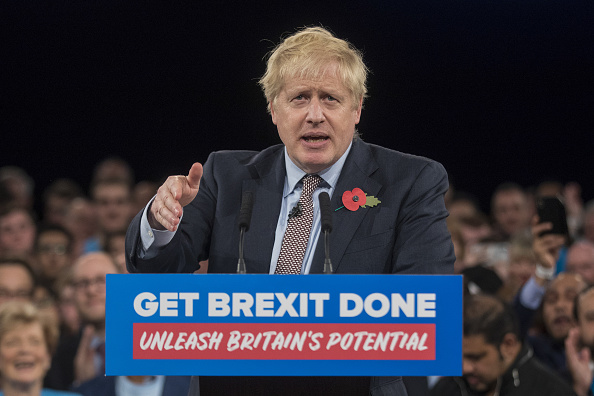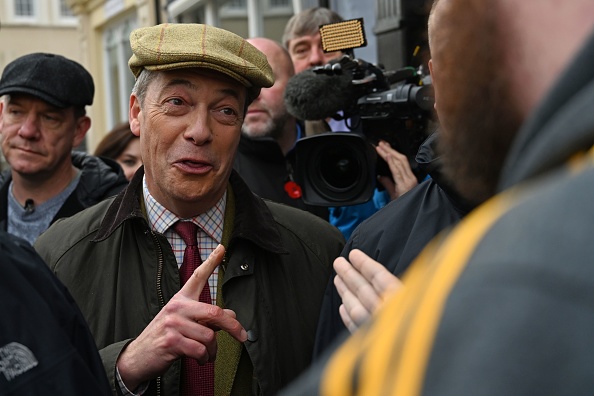JOHNSON SEEKS PUBLIC BACKING
In many ways, this election is a referendum on both Johnson’s premiership and more importantly his Brexit deal. Although his deal is largely unpopular among staunch Brexiters and Remainers, the opportunity of a large victory is too valuable to pass up. If the Tories are able to secure a convincing victory in the elections then Johnson can argue that the public has backed his deal and therefore parliament should respect the will of the people. Furthermore, no one can continue to argue that Johnson was only elected by a small percentage of the population, so in more ways than one winning this election would be the most important cornerstone in the Prime Minister’s political career.
Nevertheless, while most polls predict a Conservative victory, some disagree over the prospects of a large majority or a hung parliament. As such, the possibility of a hung parliament will cause anguish among Tories and supporters of Johnson’s deal as this again will be seen as a sign of division among the people reflected on the parliament. Also, this would beg the question of who would join the Tories in a coalition government, both the Lib-Dems and the DUP learned the hard way that forming alliances with the Conservative party often reaps little to no benefits for the smaller party involved. While the Brexit Party has garnered popularity since its inception earlier this year, few polls indicate that it can garner enough support to translate into ample seats in parliament. Furthermore, the Brexit party’s disagreements over Johnson’s deal might hinder the chances of a Tory-Brexit coalition. The fact that cabinet members, namely Jacob-Rees Mogg, have been clashing with the Brexit Party over the Johnson deal makes a prospect of an alliance even less likely. On November 1, Johnson rejected forming an alliance with the Brexit party, stating that it would help give Corbyn the keys to Number 10. If the Brexit party does successfully win seats in parliament, then its MPs will predictably become other vocal opponents towards the government. If that happens then the Tories will have Labour and Brexit MPs opposing the deal, while Lib-Dems will be rejecting Brexit altogether. The only real victory the Tories can afford is one that guarantees a large majority, anything else will feel like a loss.
Finally, to add another thorn to the Tories' side a victory in the election won’t necessarily mean that the public approves of Johnson’s deal, as previously stated in a myriad of political articles the UK’s first past the vote electoral system doesn’t necessarily reflect the opinions of the public. For instance, if a Tory candidate gains 3,001 and votes in a constituency while the opposing Labour candidate gains 3,000 then that means just under half of those who voted reject the Tories and by extension its Brexit deal. However, the voices of those 3,000 constituents won't be heard as the Tory candidate (who presumably supports Johnson's deal) will get into parliament.

BREXIT PARTY HOPES TO TAKE SEATS AWAY FROM TORIES AND LABOUR
Having done exceptionally well in the last European Parliament elections, Nigel Farage’s Brexit Party are going into its first general election with confidence. Farage has even shown the intention of taking as many votes as he can from the two main parties, after making the staggering announcement that 600 candidates from his party are running in the upcoming election. The jury is still out on how well the Brexit Party can do in the elections, smaller parties do have a precedent of performing well in European elections and then gaining underwhelming results in local elections. The first past the post system doesn’t help matters for these smaller parties, as it tends to favor the two main establishment parties. Back in 2014, UKIP, which was then led by Farage, famously came in first in the European elections defeating both Labour and the Conservatives. Meanwhile during the general election the following year, UKIP only managed to gain one MP in parliament.
Nevertheless, this election is unlike any other election. As this is the Brexit election, a single-issue party like the Brexit Party can do well, especially among staunch leavers who are frustrated with the way the government has handled the negotiation process. The Conservatives should be especially wary of regions, such as the East and West Midlands, which overwhelmingly voted to leave back in 2016, as the Brexit party will probably intensely campaign in these areas. The Brexit party will also look to gain the support of working-class voters who backed Leave in 2016 and who normally vote for Labour.

LIB-DEMS FACE SIMILAR DILEMMA
In terms of policy, the Lib-Dems are the antithesis to the Brexit Party. While the latter party wants Brexit ASAP and is willing to crash out of the bloc without a deal, the former views this entire quagmire as a big mistake and sees revoking Article 50 (i.e. canceling Brexit) as the only way of alleviating the crisis. The Lib-Dems have also made great breakthroughs in the European elections but again can mean nothing in terms of local elections. The party will seek to attract staunch Remainers, and take away votes from Labour supporters who are unhappy with the party’s neutral stance towards the issue (more on that later). The fact that this is the Brexit election and the party has a clear Brexit message it can stand to do well in the elections. But the Lib-Dems face a similar hurdle to that of the Brexit party, the dreaded first past the vote system.
CORBYN’S POLICY CONFUSES PUBLIC
Throughout this entire saga, it is hard to pinpoint Labour’s precise Brexit stance. While it officially rejects the Conservative’s Brexit policy, it has failed to provide any viable alternatives. It doesn’t reject the result of the 2016 vote but supports a second referendum. As parties launched their campaigns this week, Labour issued a statement on what it intends to do if it wins the election, however, the policy has been criticized for not being straightforward enough. Essentially, if Labour wins the election, then it will restart negotiations with the EU and get another deal, afterward, it would hold another public referendum in which voters choose between the new deal and remain.
However, Labour has not stated which side it would support in the second referendum and would only pick a side after the new deal is struck. This on the fence policy will neither please Brexiters nor Remainers, and will only repel support away from the main opposition party. The one thing Labour can hope for is the possibility that Remainers vote strategically so that pro-remain can gain enough seats in the office to oppose the Tories, but Labour’s neutral stance, as well as the Lib-Dems refusal to join forces with Corbyn, makes such prospects difficult.









